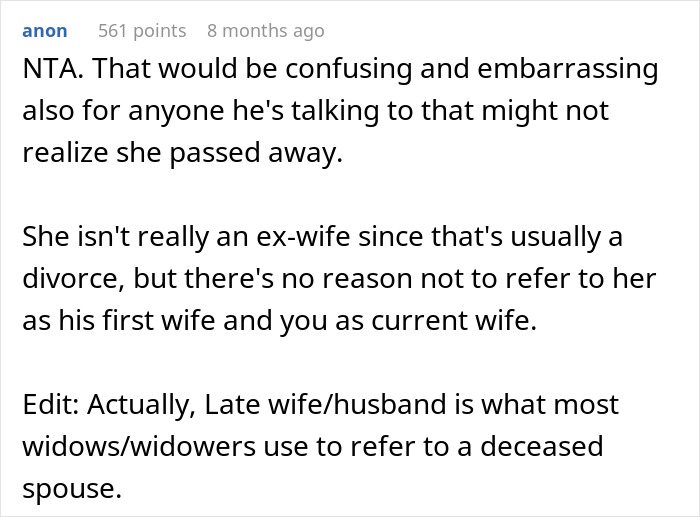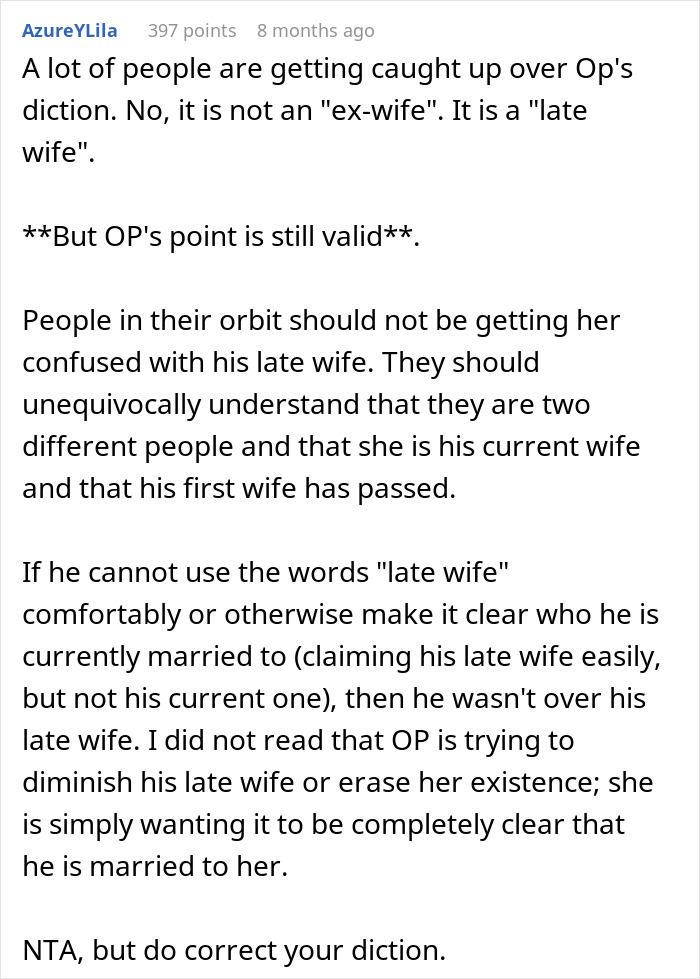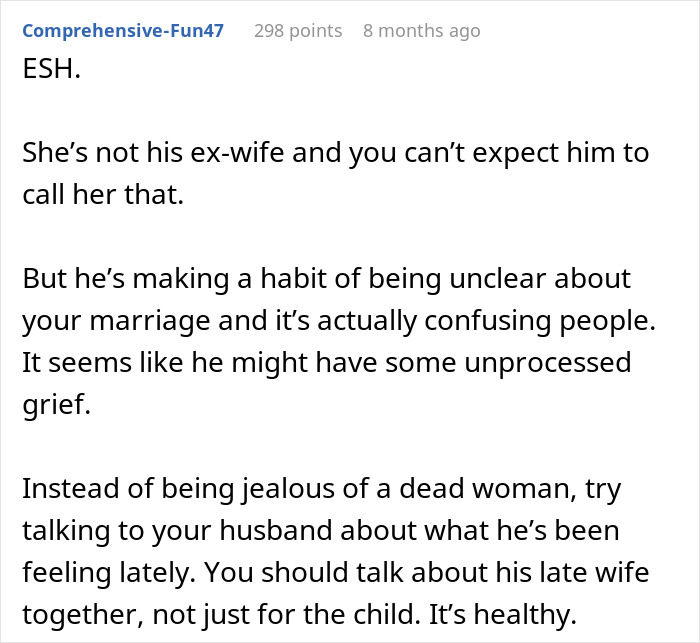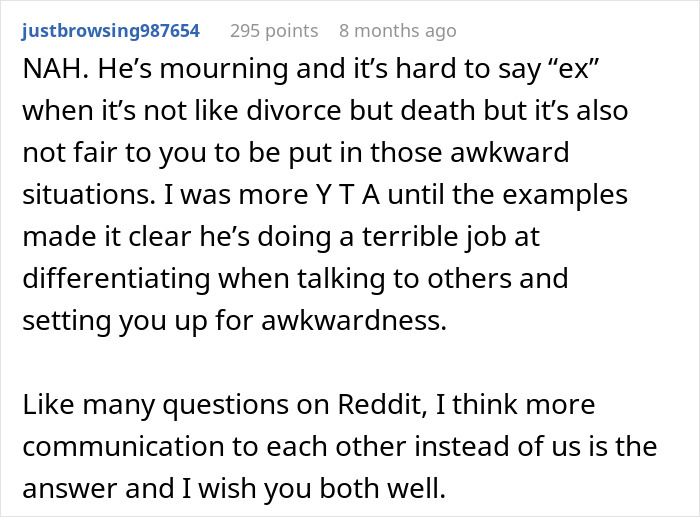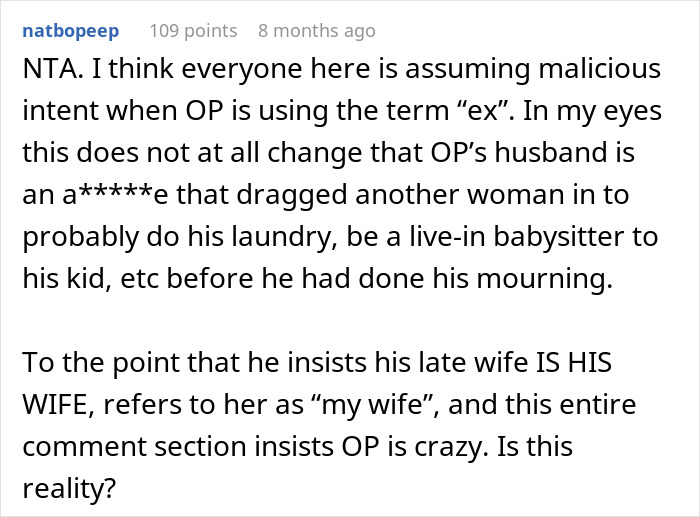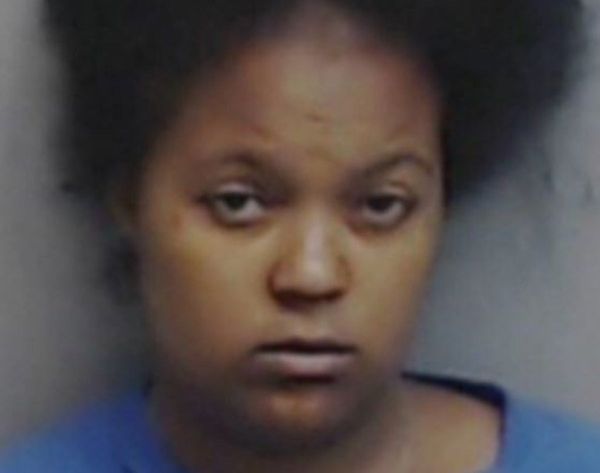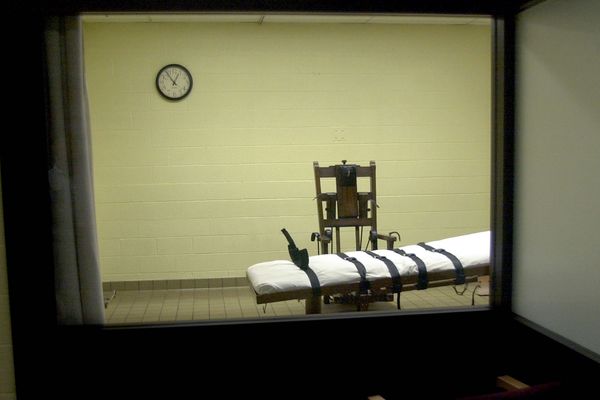Not all marriages end in happily ever after. Some end in divorce and others might end when one partner passes away. Remarriage after the loss of a spouse is not that surprising: 60% of men remarry in the two years after becoming widowers. The hardest part isn’t finding a new spouse, but rather keeping the deceased spouse’s memory in a way that respects the new one.
The dilemma this new family faced involved semantics. This woman got mad at her husband for referring to his late wife as his “wife” and not “ex-wife.” She worried that it was a sign of him not committing fully. So she decided to check with the Internet: was she a jerk for asking her husband to call his deceased wife his “ex-wife”?
Remarrying after losing a spouse comes with many different challenges

Image credits: Photos by Lanty / Unsplash (not the actual photo)
One of them might be about how to refer to your late wife, now that you have a new one

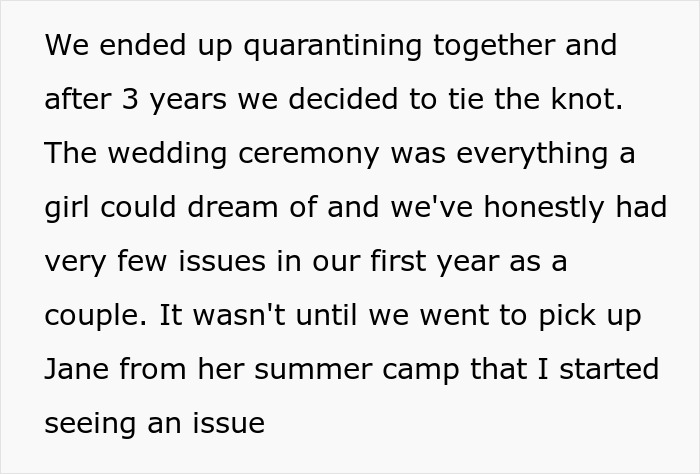
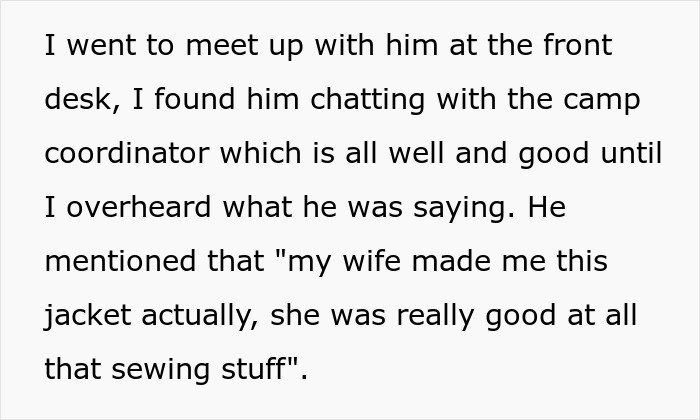
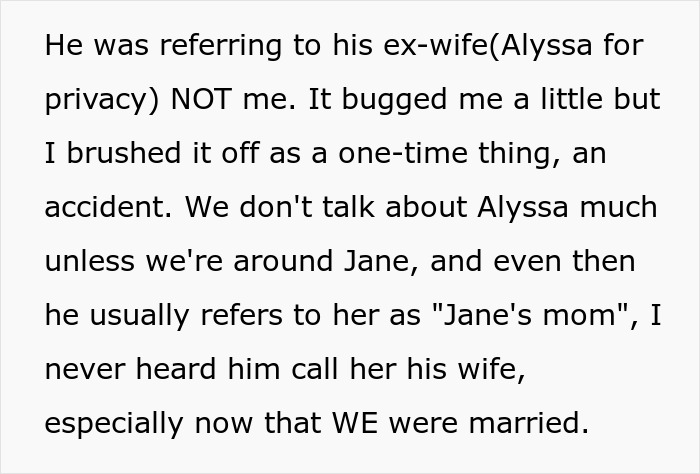

Image credits: MART PRODUCTION / Pexels (not the actual photo)


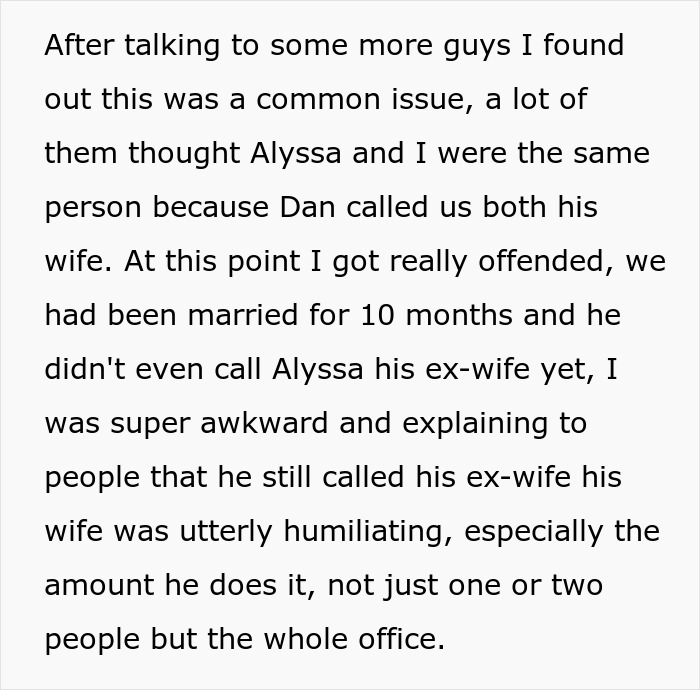

Image credits: YuriArcursPeopleimages / Envato Elements (not the actual photo)
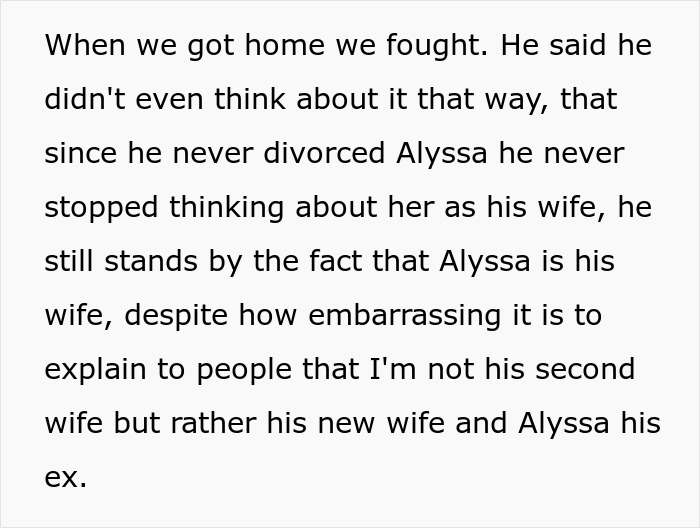

Image credits: lillyofthewaterfalls

Image credits: YuriArcursPeopleimages / Envato Elements (not the actual photo)
A late spouse is not the same as an “ex”
The semantics of what one should call their late spouse may be more complex than you think. As some commenters pointed out (and as the author later admitted in her update), “ex-wife” usually implies that there was a divorce. But what are the alternatives then? And what should one call their deceased spouse if not an “ex”?
The author of Widows Wear Stilettos Carol Brody Fleet writes that when people say “ex-wife” or “ex-husband”, they usually mean they separated willingly. “The death of a spouse or partner does not nullify a marriage or relationship – that sort of nullification involves a divorce or a breakup,” she claims. “I assure you that when it comes to widowhood, no one left the marriage willingly.”
Referring to one’s late spouse as an “ex” can be inappropriate for several reasons. First, you might offend the living spouse as they think of their late wife more highly than just an ex. Calling them an “ex” might feel like a betrayal for the living husband.
Secondly, it insults the relationship that the two shared. As the separation was involuntary, the surviving spouse most likely still looks back at their time together with love. Referring to the deceased spouse as an “ex” diminishes the life the husband had with his late wife.
There are also the deceased spouse’s family and loved ones that might get offended. It’s not just about the husband’s grief journey, but the other family members as well. In this story, for example, there’s a daughter. Referring to her mother as simply an “ex” would also be disrespectful.
Carol Brody Fleet deems “late wife” to be the best choice. And while it’s by no means perfect, the term is perhaps the best choice due to its meaning. It is derived from an old English phrase “of late,” referring to a person who was recently alive. While it may be more suitable for the recently widowed, in modern usage, it can apply to a spouse lost at any time in the past.
Some other possible ways to refer to a deceased spouse might be “my child’s mother,” “my deceased spouse,” “my spouse who passed away” or simply referring to them by name. Ultimately, it’s up to the spouse to choose which term they feel most comfortable with. In this case, it seems that the newlyweds are navigating this tricky semantic journey together, as they’re taking into account what words they both feel most comfortable with.

Image credits: Bailey Anselme / Unsplash (not the actual photo)
Marrying a widower comes with its challenges, but none that can’t be overcome
Entering into a marriage with a widowed person comes with many challenges. The biggest one might be that the deceased spouse might never really go away. The husband and daughter, in the case of this story, might want to preserve the memory of the mother, and rightfully so.
A woman marrying a widower shouldn’t aim to replace the deceased wife. In turn, the husband, family and friends shouldn’t expect the new wife to be a substitute for the late wife. That’s why the healthiest way to deal with it is to avoid comparing and competing with the deceased spouse. Of course, hearing about what a great mother and wife she was might not be that pleasant. However, it’s important to remember that the new wife knows what she signed up for and should accept her spouse’s past.
Experts advise educating yourself on grief in these cases. It’s important to understand the stages of grief and the fact that a person can grieve for a deceased spouse while simultaneously falling in love with someone else. That does not mean that the widower is not committing or not all-in in the marriage. “Many other widows and widowers still grieve a deceased spouse, even when they are very happily and successfully remarried,” grief coach Iris Arenson-Fuller writes.
Moving forward should be about creating new memories together. For example, if the husband and his late wife used to vacation in Hawaii, suggest going to Italy. Creating new traditions can be a great way to move forward appropriately. “You must accept each other, and forge a new path together that doesn’t dwell on the past, but that recognizes and even honors it,” Arenson-Fuller claims.
The author later updated her post, saying that she and her husband are getting on the same page

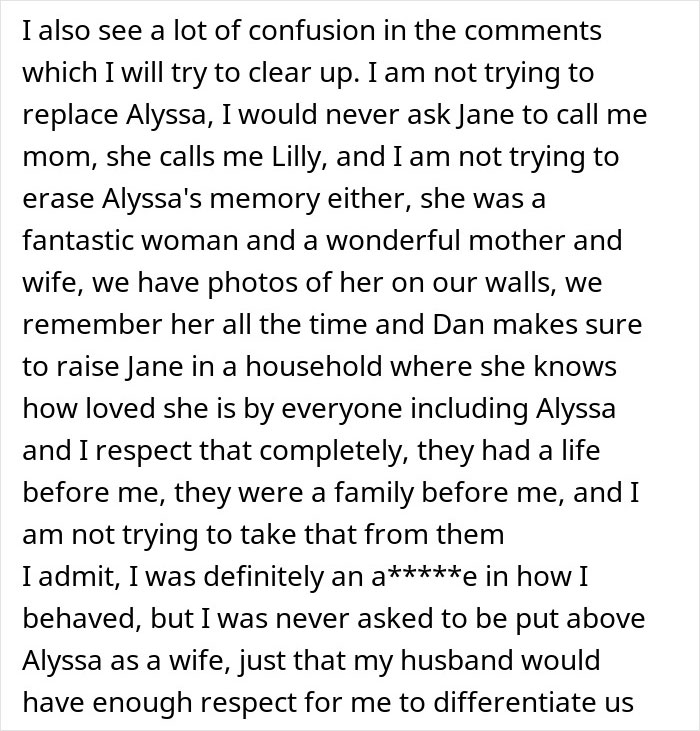
Some people thought the new wife’s behavior was somewhat inappropriate
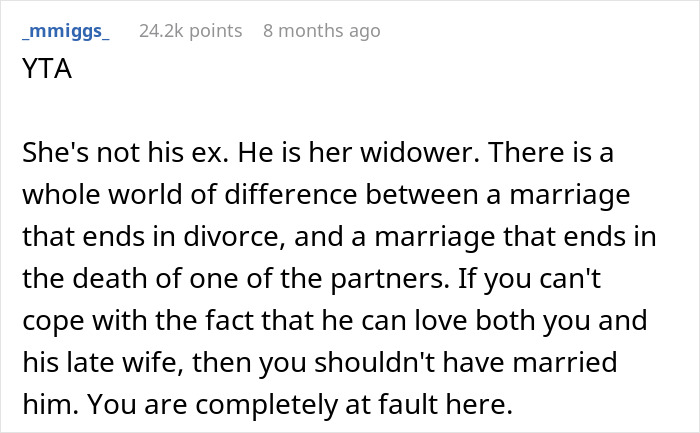


Others were more understanding about the confusing situation
